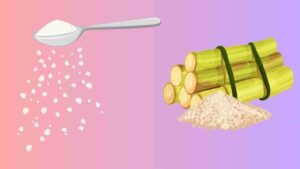In this article, we’ll explore the question of whether eating a banana every day contributes to consuming too much sugar. We’ll delve into the nutritional aspects, discuss the importance of balancing sugar intake in your diet, and provide insights on incorporating fruits like bananas into a healthy eating plan.
Key Takeaways:
-
Bananas are a nutritious fruit that can be enjoyed as part of a balanced diet.
-
While bananas do contain sugar, they also offer various essential nutrients.
-
It’s important to consider your overall sugar intake and balance it with other food choices.
-
Fiber present in bananas helps regulate blood sugar levels and promotes digestive health.
-
Incorporating a variety of fruits, including bananas, can provide a range of vitamins and minerals.
Understanding the Nutritional Value of Bananas
In this section, we’ll explore the nutritional profile of bananas and understand why they are considered a healthy choice. Bananas are not only delicious but also packed with essential nutrients that contribute to overall well-being. Let’s dive into the specifics of banana nutrition, including their sugar content, carbohydrates, and fiber.
The Sugar Content of Bananas
Contrary to popular belief, bananas contain natural sugars that contribute to their sweet taste. However, the sugar in bananas comes in the form of fructose, a natural sugar found in fruit. This differs from the added sugars found in processed foods and beverages that should be limited in a healthy diet. In moderation, the sugar content in bananas can be enjoyed as part of a balanced eating plan.
The Role of Carbohydrates in Bananas
Carbohydrates are an essential macronutrient that provides energy to the body. Bananas are a good source of carbohydrates, supplying the body with the fuel it needs for daily activities. They contain both simple and complex carbohydrates, offering a quick energy boost while also providing sustained energy release.
The Significance of Fiber in Bananas
Bananas are also rich in dietary fiber, which plays a crucial role in promoting digestive health. Fiber aids in maintaining regular bowel movements, preventing constipation, and supporting a healthy gut. Additionally, fiber helps to slow down the digestion and absorption of sugars, promoting better blood sugar control.
By understanding the nutritional components of bananas, you can make informed decisions about incorporating them into your diet. The sugar content, carbohydrates, and fiber found in bananas contribute to their overall nutritional value and can be enjoyed as part of a well-balanced and healthy eating plan.
Balancing Sugar Intake and Fruit Consumption
When it comes to maintaining a healthy eating plan, balancing sugar intake and making mindful fruit choices is key. While fruits like bananas offer numerous nutritional benefits, it’s important to consume them in moderation to keep your overall sugar intake in check.
The concept of healthy eating revolves around finding the right balance in your diet. This means incorporating a variety of food groups, including fruits, while being mindful of sugar content. By choosing fruits wisely and watching portion sizes, you can enjoy their natural sweetness without going overboard on sugar.
“A healthy eating plan is all about moderation. It’s not about completely cutting out sugar or avoiding fruits altogether,” says nutritionist Emily Smith. “Instead, it’s about making informed choices and finding the right balance for your individual needs.”
So how can you incorporate fruits like bananas into your daily diet without exceeding recommended sugar limits? Here are a few practical tips:
1. Pair Fruits with Protein and Fiber
Combining fruits with protein-rich foods and high-fiber options can help slow down the absorption of sugar into your bloodstream. For example, enjoy a banana with a handful of nuts or spread some nut butter on banana slices for a balanced snack.
2. Opt for Whole Fruits Instead of Juices
When consuming fruits, it’s best to eat them in their whole form, rather than opting for juices. Whole fruits provide fiber, which helps regulate blood sugar levels and keeps you feeling fuller for longer.
3. Be Mindful of Portion Sizes
While fruits are generally nutritious, it’s important to be mindful of portion sizes, especially if you’re watching your sugar intake. A medium-sized banana is a great option, as it contains about 14 grams of sugar. By being conscious of the portions you consume, you can still enjoy the benefits of fruits without exceeding your daily sugar limits.
By incorporating these tips into your daily routine, you can enjoy the natural sweetness of fruits like bananas while maintaining a balanced and healthy diet. Remember, moderation is key when it comes to sugar intake, so always be mindful of your overall consumption.
Conclusion
In conclusion, when it comes to maintaining a healthy diet, moderation is key. While bananas do contain natural sugar, they can still be enjoyed as part of a balanced eating plan. By being mindful of your overall sugar intake and making varied fruit choices, you can incorporate a banana a day into your diet without worrying about excessive sugar consumption.
It’s important to remember that sugar itself is not bad, but it’s important to consume it in moderation. Balancing your sugar intake with other nutritious foods is essential for overall health and well-being. Bananas provide various nutrients, including potassium, vitamin C, and fiber, making them a valuable addition to a healthy diet.
By incorporating bananas into your daily routine, you can enjoy their nutritional benefits while managing sugar moderation. Remember that a healthy diet is all about balance and variety, and bananas can be a delicious and nutritious choice within that framework. So go ahead and savor that banana guilt-free as part of a well-rounded eating plan.
FAQ
Is eating a banana every day too much sugar?
Consuming a banana every day does contribute to your sugar intake, as bananas contain natural sugars. However, when consumed in moderation and as part of a balanced diet, bananas can be included without exceeding recommended sugar limits.
What is the nutritional value of bananas?
Bananas are a nutritious fruit that contain important vitamins and minerals. They are a good source of carbohydrates, providing energy, and also contain fiber, which aids digestion. While bananas do contain sugar, they also offer essential nutrients that contribute to a healthy diet.
How can I balance sugar intake and fruit consumption?
Balancing sugar intake involves making mindful fruit choices and practicing moderation. Incorporating fruits, including bananas, into your daily diet is important for overall health. To manage sugar intake, it is advisable to consume a variety of fruits in combination with other nutritious foods.
Can I still have a healthy diet if I eat a banana every day?
Yes, you can maintain a healthy diet while enjoying a banana every day. The key is to be mindful of your overall sugar intake and ensure you are incorporating a variety of fruits and other food groups into your meals. By practicing moderation and making informed choices, you can still reap the nutritional benefits of a banana without compromising a balanced diet.



